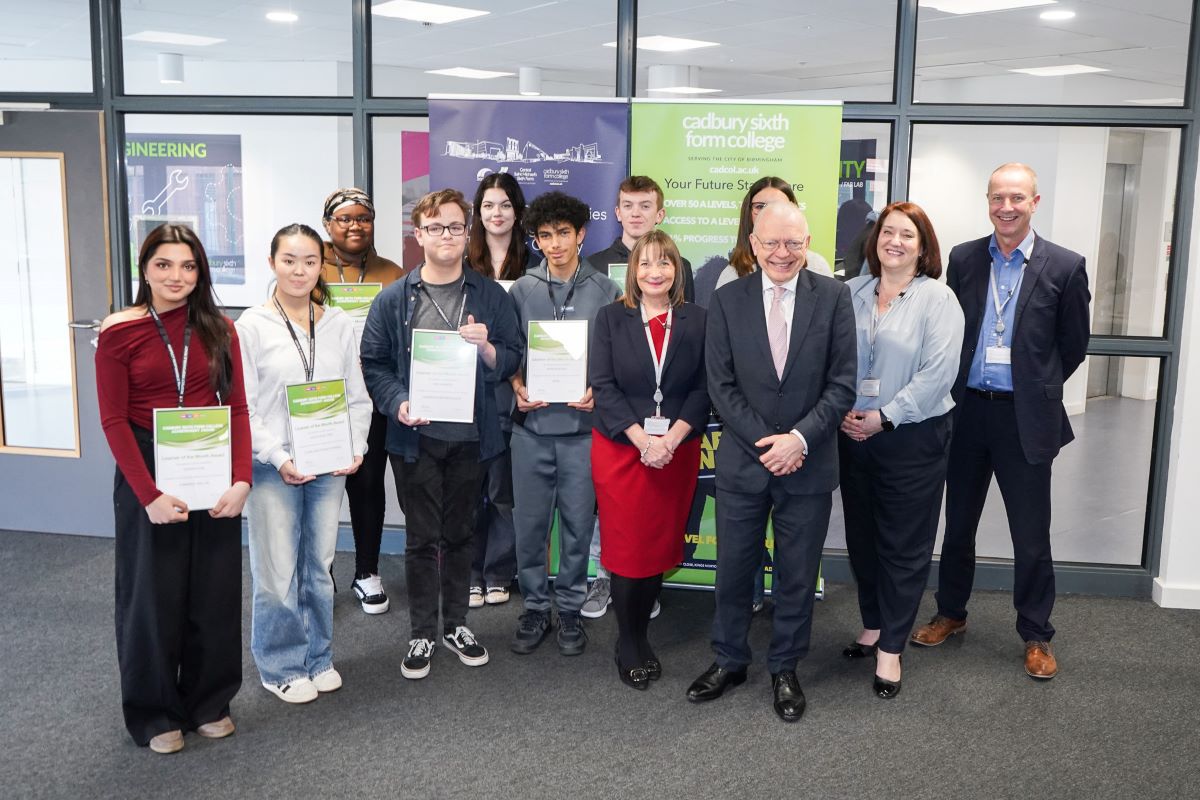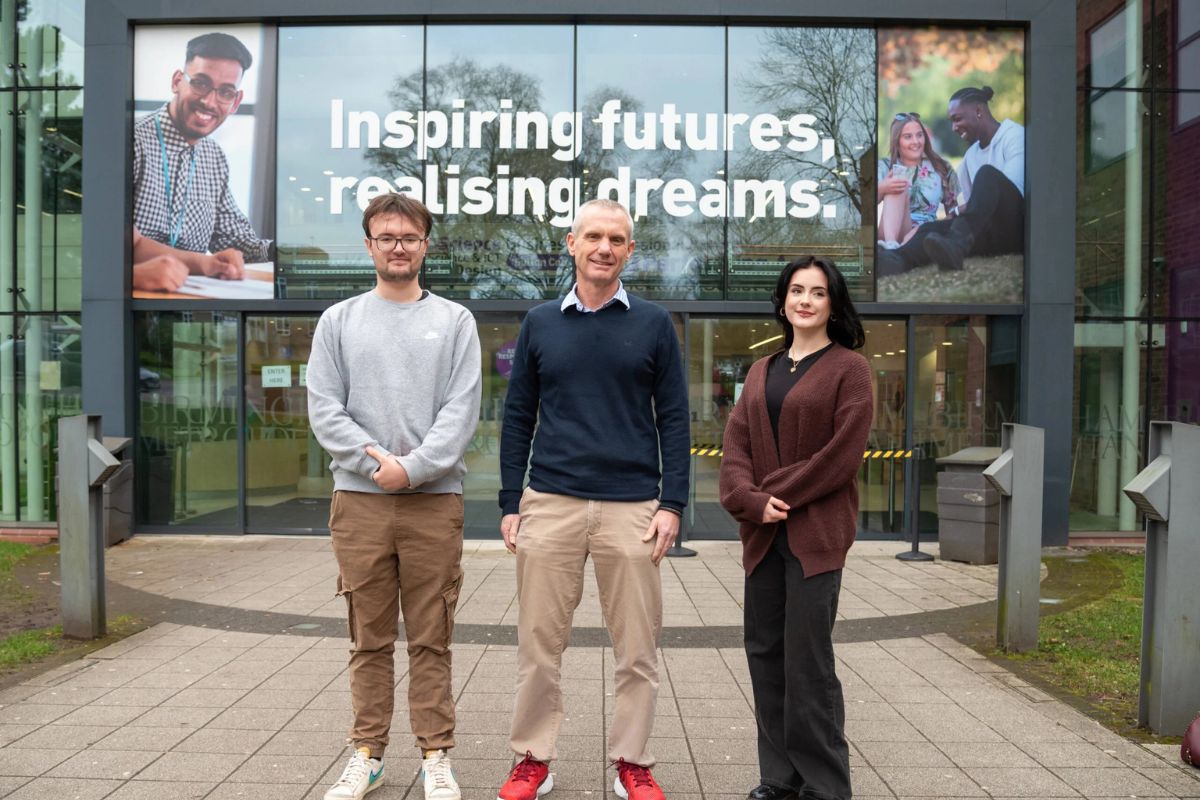Most students oppose the plans in England to reduce access to student loans for those on certain courses – but they do want to see courses more focused on employment

The Higher Education Policy Institute (www.hepi.ac.uk) polled 1,105 students via the National Union of Students (NUS) for their views on careers services and employment.
The results are being published in How can you help me?: Students’ perspectives on careers services and employment (HEPI Policy Note 40), produced in conjunction with Handshake.
A large majority of students want to see more higher education courses co-designed with employers. But there is also a large majority against the plans to reduce access to student finance for courses with less good employment records.
Josh Freeman, the co-author of the report, said:
‘The most striking finding from this research is that students want employment to be a major focus of their time at university. They don’t want careers to be an afterthought but to be threaded throughout their course.
‘There are also lessons here for employers looking to recruit graduates as a majority of students have told us they want their prospective employer to look beyond their degree results to their extracurricular activities and work experience.
‘The report shows around half of students have not yet engaged with their careers service, although those who have engaged generally consider the services to be good. There is more work to be done engaging students early on, although no one should pretend this is easy under current funding constraints.’
Key points:
We polled 1,105 students online through the National Union of Students (NUS) on their experiences with careers services and their perspectives on graduate employment.
- Students are evenly split on whether or not they regard it as the responsibility of their higher education institution to find them a job, with one-quarter (34%) believing it is and only a slightly lower proportion (30%) saying it is not.
- Most students look to their careers service to offer help with finding an internship or placement (63%), writing their curriculum vitae (63%), interview preparation (61%), finding a career (60%) and hosting careers fairs (52%). Providing mentoring and life skills also has substantial support (49%) while far fewer students expect help with finding a holiday job (22%).
- A majority of students (53%) think ‘all university courses should be designed mainly with future employment in mind’ and a further 37% say ‘some university courses should be’. Very few students say only ‘a small proportion’ (4%) or no university course (4%) should have a focus on employment.
- However, over half of students oppose the proposal in England of providing reduced access to student finance to those opting for courses with poor employment prospects; 53% ‘strongly disagree’ and an additional 16% ‘disagree’.
- Nearly one-half of students are either ‘very confident’ (14%) or ‘quite confident’ (32%) that they are likely to find their desired job on graduation but a substantial minority are ‘quite unconfident’ (21%) or ‘very unconfident’ (9%).
- When it comes to the type of employer, many students say they do not mind (34%) what size their future employer is. Among those with a preference, a similar proportion chose larger employers (28%) with 250 or more staff than small-to-medium sized enterprises (31%) with 249 staff or fewer.
- More students prefer employers who consider characteristics such as work experience and extra-curricular activities (41%) than prefer employers who mostly care about degree results (30%).
- When asked what they regard as ‘the best definition of a “graduate-level job”’, students split three ways: 30% say a graduate-level job is one where an employer requires applicants to have a degree; 29% say it is one that is officially classified as ‘graduate-level’; and 26% say it is a position that pays above the student loan repayment threshold.
- Nearly half of students are either ‘very confident’ (16%) or ‘quite confident’ (31%) that they will secure a graduate-level role, while 17% are ‘quite unconfident’ and 8% are ‘very unconfident’.
- Around half (49%) of students have not used their careers service to date, which is slightly higher than the proportion who have (43%).
- Those who have used a careers service are more satisfied than unsatisfied, with 59% saying they were ‘very happy’ or ‘quite happy’ with the service they received. However, 13% were ‘quite unhappy’ and 7% were ‘very unhappy’.
- Those who have not used their careers service were given an opportunity to explain why. Some said they do not know what their careers service has to offer, some believe the careers service would not support their specific career needs and some feel they are too early in their course to consider career planning.
Clare Adams, Head of Education Strategy, UK at Handshake, said:
‘Employability is clearly a priority for students as part of their university experience – both in terms of how courses are being developed and extracurricular provision. This means careers professionals play an increasingly key role but are often being asked to do more with less resources.
‘To alleviate the pressure on careers professionals, we see technology playing an important role in amplifying and supporting the great work already being done across the UK and Ireland. Handshake is committed to working in partnership with universities, employers and students to deliver an engaging, personalised and supportive digital student community.
‘It is one which helps students as they navigate the unique transition from education to employment, directing them to the expert information, advice and guidance delivered by their institution and connecting them to relevant employers and alumni along the way, ultimately ensuring better long-term employment outcomes for all.’
Nick Hillman, Director of HEPI and co-author of the report, said:
‘Higher education is about much more than the job you do afterwards. But students do nonetheless – quite rightly – want to find fulfilling and rewarding careers after taking so much time out to study and accruing so much debt.
‘This research explains more about what students want, and it is clear their requests are reasonable and proportionate. They want universities and employers to work together to design more courses, they want employers to recognise all of their experiences rather than just their degree results and they want careers services to be accessible and supportive.
‘This chimes with the ambitions of careers professionals, who work so hard to propel their students on their way in the world. But it can only happen with a dedicated commitment from senior managers, sufficient resources and smart – rather than counterproductive – oversight from regulators and policymakers.’
Chloe Field, NUS Vice President Higher Education, said:
‘With the cost-of-living crisis impacting us all, it’s no surprise that students are focused on their employment after university and want to be well prepared. All students should be able to progress to employment that recognises their rights at work, and offers high-quality pay and working conditions.
‘Students are also clearly rejecting the idea of restricting access to student finance based on a course’s employment outcomes. We believe that this measure would be utterly regressive, and shut down opportunity for all but the richest students to study the broadest range of courses.’
Esther Kent, Academic Director for Employability at Sheffield Hallam University, said:
‘A student’s journey to success rightly deserves the attention of course designers, careers and employability teams, employers and policymakers. This report reiterates the need for true and meaningful collaboration while recognising that students need and want different levels and types of support and opportunities at different points of their journey to graduate employment.
‘While achieving collaborative success is complex, career professionals are unequivocally dedicated to every part of student success and relish every occasion to access and empower students. I urge institutions to consider the findings of this research, its application to them and the future of their graduates and make the changes needed now. Be bold, be brave, be ambitious.’











Responses